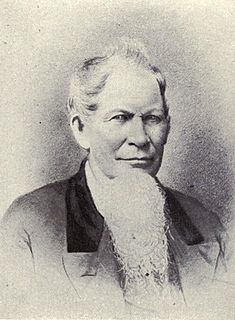 W
WLorrin Andrews was an early American missionary to Hawaii and judge. He opened the first post-secondary school for Hawaiians called Lahainaluna Seminary, prepared a Hawaiian dictionary and several works on the literature and antiquities of the Hawaiians. His students published the first newspaper, and were involved in the first case of counterfeiting currency in Hawaii. He later served as a judge and became a member of Hawaii's first Supreme Court.
 W
WAlexander Sabino Argüelles is an American linguist notable for his work on Korean. He is highly committed to the learning of foreign languages, and was profiled in Michael Erard's Babel No More. He is one of the polyglots listed in Kenneth Hyltenstam's Advanced Proficiency and Exceptional Ability in Second Languages, and has been described by The New Yorker as "a legendary figure in the [polyglot] community".
 W
WRobert A. Blust is a prominent linguist in several areas, including historical linguistics, lexicography and ethnology. Blust specializes in the Austronesian languages and has made major contributions to the field of Austronesian linguistics.
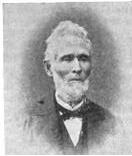 W
WNathan Brown was an American Baptist missionary to India and Japan, Bible translator, and abolitionist. He is noted for his works on Assamese language, grammar and script.
 W
WCharles Anderson Dana was an American journalist, author, and senior government official. He was a top aide to Horace Greeley as the managing editor of the powerful Republican newspaper New-York Tribune until 1862. During the American Civil War, he served as Assistant Secretary of War, playing especially the role of the liaison between the War Department and General Ulysses S. Grant. In 1868 he became the editor and part-owner of the New York Sun. He at first appealed to working class Democrats but after 1890 became a champion of business-oriented conservatism. Dana was an avid art collector of paintings and porcelains and boasted of being in possession of many items not found in several European museums.
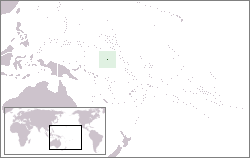 W
WReverend Philip Adam Delaporte was a German-born American Protestant missionary who ran a mission on Nauru with his wife from 1899 until 1915. During this time he translated numerous texts from German into Nauruan including the Bible and a hymnal. He was also one of the first to create a written form for the Nauruan dialect, published in a Nauruan-German dictionary.
 W
WHenry Drisler was an American classical scholar.
 W
WJohn Eliot was a Puritan missionary to the American Indians who some called "the apostle to the Indians" and the founder of Roxbury Latin School in the Massachusetts Bay Colony in 1645.
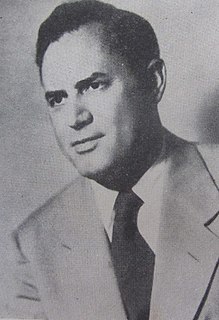 W
WBergen Baldwin Evans was a Northwestern University professor of English and a television host. He received a George Foster Peabody Award in 1957 for excellence in broadcasting for his CBS TV series The Last Word.
 W
WDurbin Feeling was an American Cherokee linguist who wrote the first Cherokee–English dictionary. He is considered the greatest modern contributor to the preservation of the endangered Cherokee language.
 W
WIsaac Kaufmann Funk was an American Lutheran minister, editor, lexicographer, publisher, and spelling reformer. He was the co-founder of Funk & Wagnalls Company, the father of author Wilfred J. Funk, and the grandfather of author Peter Funk, who continued his father's authorship of "Word Power" until 2003. Funk & Wagnalls Company published The Literary Digest, The Standard Dictionary of the English Language, and Funk & Wagnalls Standard Encyclopedia.
 W
WBryan Andrew Garner is an American lawyer, lexicographer, and teacher who has written more than two dozen books about English usage and style such as Garner's Modern English Usage for a general audience, and others for legal professionals. He also wrote two books with Justice Antonin Scalia: Making Your Case: The Art of Persuading Judges (2008) and Reading Law: The Interpretation of Legal Texts (2012).
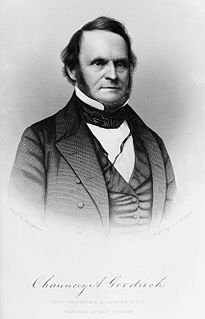 W
WChauncey Allen Goodrich was an American clergyman, educator and lexicographer. He was the son-in-law of Noah Webster and edited his Dictionary after his father-in-law's death.
 W
WBettina Edith Gorton, Lady Gorton was an American-born academic who was best known as the first wife of John Gorton, the 19th Prime Minister of Australia. She was born in Portland, Maine, met her husband while studying in France, and married in 1935. She developed an interest in South-East Asian culture relatively late in life, learning to speak Malay and Javanese and completing her first university degree at the age of 50. She was involved with a long-running Australian National University project to compile a Malay–English dictionary, although she curtailed her involvement during her husband's prime ministership (1968–1971).
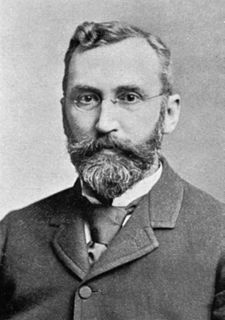 W
WGeorge Milbr(e)y Gould was an American physician and lexicographer.
 W
WLouis Herbert Gray, Ph.D. (1875–1955) was an American Orientalist, born at Newark, New Jersey. He graduated from Princeton University in 1896 and from Columbia University.
 W
WWilliam Torrey Harris was an American educator, philosopher, and lexicographer. He worked for nearly a quarter century in St. Louis, Missouri, where he taught school and served as Superintendent of Schools for twelve years. With Susan Blow, in 1873 he established the first permanent, public kindergarten in the country. He is also known for establishing high school as an integral part of public education.
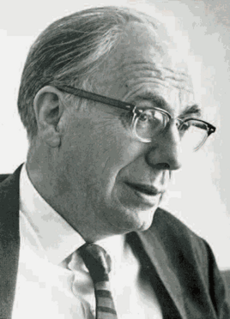 W
WEinar Ingvald Haugen was an American linguist, author, and professor at University of Wisconsin–Madison and Harvard University.
 W
WJames Curtis Hepburn was an American physician, translator, educator, and lay Christian missionary. He is known for the Hepburn romanization system for transliteration of the Japanese language into the Latin alphabet, which he popularized in his Japanese–English dictionary.
 W
WCharles George Herbermann was a German-American professor and historian. He was born in Saerbeck near Münster, Westphalia, Prussia, the son of George Herbermann and Elizabeth Stipp. He arrived in the United States in 1851, and seven years later graduated at College of St. Francis Xavier, New York City. He was appointed professor of Latin language and Literature (1869-1914) and librarian (1873-1914) at the College of the City of New York. For more than 50 years, he was immersed amidst various issues involved with Catholicism. He was president of the Catholic Club (1874–75) and of the United States Catholic Historical Society (1898-13). He became editor in chief of the Catholic Encyclopedia in 1905. He translated Torfason's History of Vinland and wrote Business Life in Ancient Rome (1880).
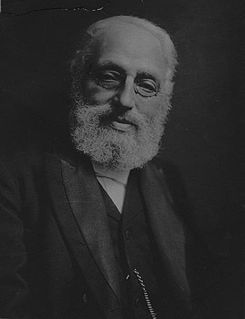 W
WMarcus Jastrow was a German born American Talmudic scholar, most famously known for his authorship of the popular and comprehensive A Dictionary of the Targumim, Talmud Babli, Talmud Yerushalmi and Midrashic Literature. He was also a progressive, early reformist rabbi in America.
 W
WEliza Grew Jones was an American missionary and lexicographer. She created a romanized script for writing the Siamese language, and created the first Siamese-English dictionary.
 W
WAdoniram Judson, Jr. was an American Congregationalist and later Particular Baptist missionary, who served in Burma for almost forty years. At the age of 25, Adoniram Judson was sent from North America to preach in Burma. His mission and work with Luther Rice led to the formation of the first Baptist association in America to support missionaries.
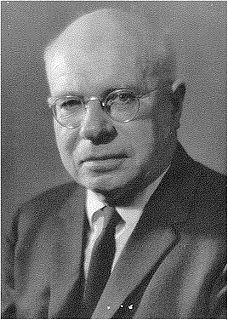 W
WLloyd August Wilhelm Kasten was an American Hispanist, medievalist, lexicographer, and Lusophile.
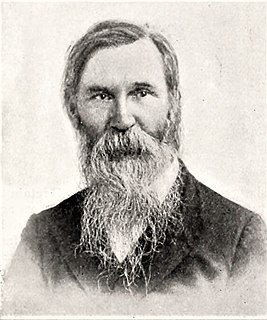 W
WFrancis Andrew March, was an American polymath, academic, philologist, and lexicographer. He is considered the principal founder of modern comparative linguistics in Anglo-Saxon.
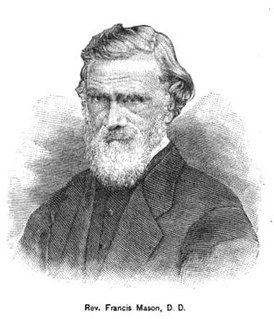 W
WFrancis Mason, American missionary and a naturalist, was born in York, England. His grandfather, also Francis Mason, was the founder of the Baptist Society in York, and his father, a shoemaker by trade, was a Baptist lay preacher there.
 W
WErin McKean is an American lexicographer.
 W
WWilliam Chester Minor, also known as W. C. Minor, was an American army surgeon and who was held in a psychiatric hospital in England from 1872 to 1910 after, haunted by his paranoia, he shot George Merrett, whom Minor believed to have broken into his room. In later life he became a contributor to the Oxford English Dictionary: he was one of the project's most effective volunteers, reading through his large personal library of antiquarian books and compiling quotations that illustrated the way particular words were used.
 W
WPaul Monroe, Ph.D., LL.D. (1869–1947) was an American educator.
 W
WWilliam Allan Neilson was a Scottish-American educator, writer and lexicographer, graduated in the University of Edinburgh in 1891 and became a Ph.D. in Harvard University in 1898. He was president of Smith College between 1917 and 1939.
 W
WAndrew Nathaniel Nelson was an American missionary and scholar of East Asian languages and literature, best known for his work in Japanese lexicography.
 W
WNoah Thomas Porter III was an American academic, philosopher, author, lexicographer and an outspoken anti-slavery activist. Porter Mountain, of the Adirondack Mountains, was named for him after he was the first to climb it in 1875. He was President of Yale College (1871–1886).
Leo Calvin Rosten was an American humorist in the fields of scriptwriting, storywriting, journalism, and Yiddish lexicography. He was also a political scientist interested especially in the relationship of politics and the media.
 W
WJesse Sheidlower is an author and editor specializing in English and lexicography. From 1999 until 2005 he was Principal North American Editor at the Oxford English Dictionary; then he was editor-at-large focusing on North American usage. He left the OED in 2013.
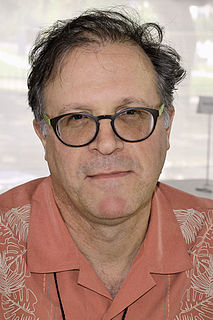 W
WIlan Stavans is a Mexican-American essayist, lexicographer, cultural commentator, translator, short story author, publisher, TV personality. He writes and speaks on American, Hispanic, and Jewish cultures. He is the author of Quixote (2015) and a contributor to the Norton Anthology of Latino Literature (2010).
 W
WJames Strong was an American academic, biblical scholar, lexicographer, Methodist theologian and professor, best known for being the creator of Strong's Concordance.
 W
WJohn Van Nest Talmage, was a Protestant Christian missionary to Amoy, Fujian, China. He was sent by the Reformed Church in America from 1847 to 1890.
 W
WFrancis "Frank" Horace Vizetelly was an English-American lexicographer, etymologist, and editor.
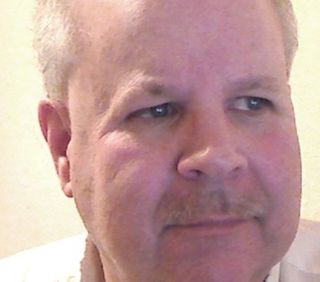 W
WWilliam Grady Ward is an American software engineer, lexicographer, and Internet activist who has been prominent in the Scientology versus the Internet controversy.
 W
WNoah Webster Jr. was an American lexicographer, textbook pioneer, English-language spelling reformer, political writer, editor, and prolific author. He has been called the "Father of American Scholarship and Education". His "Blue-backed Speller" books taught five generations of American children how to spell and read. Webster's name has become synonymous with "dictionary" in the United States, especially the modern Merriam-Webster dictionary that was first published in 1828 as An American Dictionary of the English Language.
 W
WWilliam Dwight Whitney was an American linguist, philologist, and lexicographer known for his work on Sanskrit grammar and Vedic philology as well as his influential view of language as a social institution. He was the first president of the American Philological Association and editor-in-chief of The Century Dictionary.
 W
WMarie Wilcox is the last fluent speaker of Wukchumni, a dialect of Tule-Kaweah, which is a Yokutsan indigenous language spoken by the Tule-Kaweah Yokuts of California. She and her daughter teach interested members of their tribe; however, "few seem devoted to learn." She spent more than seven years working on a Wukchumni dictionary, which was published in 2014. As of 2014, it was estimated that the Wukchumni tribe had fewer than 200 members, of which Marie was the only fluent speaker of the language.
 W
WSamuel Wells Williams was a linguist, official, missionary and Sinologist from the United States in the early 19th century.
 W
WMiron Winslow was an American Board of Commissioners for Foreign Missions missionary to the American Ceylon Mission, Ceylon, where he established a mission at Oodooville and founded a seminary. He founded a mission station at Madras, the first and chief station of the American Madras Mission.
 W
WJoseph Emerson Worcester was an American lexicographer who was the chief competitor to Noah Webster of Webster's Dictionary in the mid-nineteenth-century. Their rivalry became known as the "dictionary wars". Worcester's dictionaries focused on traditional pronunciation and spelling, unlike Noah Webster's attempts to Americanize words. Worcester was respected by American writers and his dictionary maintained a strong hold on the American marketplace until a later, posthumous version of Webster's book appeared in 1864. After Worcester's death in 1865, their war ended.
 W
WBenjamin Zimmer is an American linguist, lexicographer, and language commentator. He is a language columnist for The Wall Street Journal and contributing editor for The Atlantic. He was formerly a language columnist for The Boston Globe and The New York Times Magazine, and editor of American dictionaries at Oxford University Press. Zimmer was also a former executive editor of Vocabulary.com and VisualThesaurus.com.